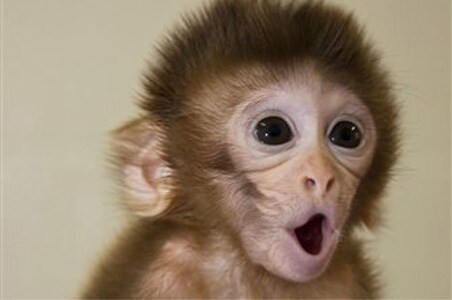
It's not only humans who wonder if the grass is greener elsewhere. Even monkeys do have the desire to explore options in hopes of finding something better, a new study has revealed.
In fact, researchers at the Duke University have based their findings on an analysis of brain scans of monkeys, the findings of which are published in the latest edition of the Current Biology journal.
"We suspect that such a fundamental question engages many areas of the brain, but this is one of the first studies to show how individual neurons can carry signals for these kinds of strategic decisions," lead author John Pearson said.
In their study, the researchers looked at how nerve cells fired in a part of the brain known as the posterior cingulate cortex as the monkeys were offered a selection of rewards. Generally, these neurons fired more strongly when monkeys decided to explore new alternatives.
The monkeys started with four rewards to choose from, each a 200 microliter cup of juice. After that, the four targets began to slowly change, becoming larger or smaller.
The monkeys were free to explore the other targets or stay with the initial target, whose value they knew for certain. Monkeys had to select an option to learn its current value and integrate this information with their knowledge of the chances of getting more juice at a different target.
By studying the individual neurons, the researchers could predict which strategy the monkey would employ.
"These data are interesting from a human health perspective, because the posterior cingulate cortex is the most metabolically active part of the brain when we are daydreaming or thinking to ourselves, and it is also one of the first parts of the brain to show damage in Alzheimer's.
"People with Alzheimer's become set in their ways and don't explore as much, which may be because this part of the brain is damaged.
"Likewise, in people with obsessive-compulsive disorder, they can become fixed on certain activities or patterns of activity and can't disengage from them, which may also relate to changes in this part of the brain that renders them mentally unable to switch gears between exploring and exploiting," said co-author Michael Platt.
Track Latest News Live on NDTV.com and get news updates from India and around the world

